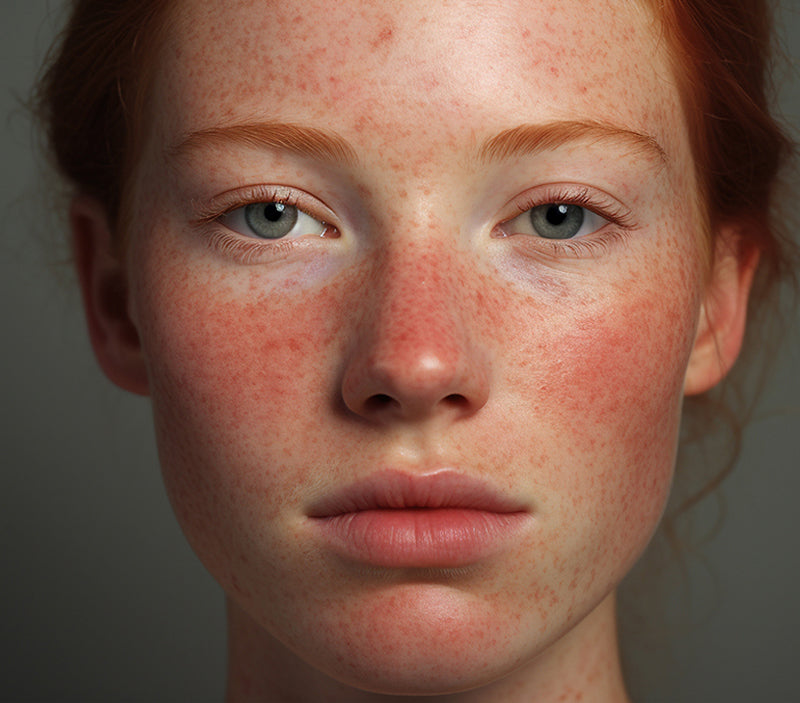By Category

Sensitive skin is a common concern that affects people of all ages and backgrounds. If you're one of the many individuals grappling with sensitive skin, you understand the challenges that come with finding the right skincare routine. In this blog post, we will delve into the intricacies of sensitive skin, exploring its causes, identifying common triggers, and offering practical tips on how to care for and soothe sensitive skin.
What is Sensitive Skin?
Sensitive skin is a condition characterized by heightened reactivity to environmental factors, skincare products, and even certain fabrics. Individuals with sensitive skin may experience redness, itching, burning, or dryness more easily than those with normal skin and they may have one or more of the following skin physiological changes: increased neurosensory input, enhanced immune responses, and/or reduced barrier function. The pathophysiology of sensitive skin has long been suboptimal; the most common symptom is impaired barrier function, possibly resulting in changes in the nervous system and/or epidermal structure. Cosmetics, climate changes and skin barrier impairment are the main factors that contribute for skin hyperreactivity. Cosmetics are the main triggering factors of sensitive skin, especially in women, due to overuse and sometimes inappropriate use. Presence of potentially irritating substances in its composition (alpha-hydroxy acids, propylene glycol, alcohol, fragrances, etc.) increases the possibility of symptoms..
Causes of Sensitivity:
Patch Testing
Avoiding Common Culprits:
Gentle Cleansing:
Moisturise Regularly:
Sun Protection:
Careful Product Selection:

Conclusion:
Caring for sensitive skin requires a thoughtful and tailored approach. By understanding the causes, identifying triggers, and adopting a gentle skincare routine, you can nurture your sensitive skin and promote a healthier complexion. Remember, consistency is key, and consulting with a dermatologist can provide personalized guidance for your unique skin needs. Embrace the journey of self-care and empower yourself to make informed choices that contribute to the well-being of your sensitive skin.
Reference: Sensitive skin: review of an ascending concept
Duarte I, Silveira JEPS, Hafner MFS, Toyota R, Pedroso DMM. Sensitive skin: review of an ascending concept. An Bras Dermatol. 2017 Jul-Aug;92(4):521-525. doi: 10.1590/abd1806-4841.201756111. PMID: 28954102; PMCID: PMC5595600.